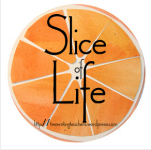Slice of Life Day 6: Edu-Nonsense
This is Day 6 of the 31 day Slice of Life Challenge sponsored by Two Writing Teachers. I am participating in this community for the first time this year. So far, I am loving the daily habit of writing, and the feedback from other writers!

Facebook. Twitter. Google apps. Goodreads. These tools have become so much a part of the background of my everyday life. They are always operational. They always turn up the information I am looking for. They are always free. Why are these tools not commonplace in the educational sphere?
Last year, we went to a 1:1 initiative in my school. We purchased a Chromebook for every student. I was excited. I was already very familiar with Google Classroom as an LMS, having piloted a BYOD program for 2 years previous to our 1:1. I figured that with the students working on Chromebooks, they would be expected to explore and utilize the full spectrum of Google apps, so I started exploring new features and new apps, gearing up for the 1:1 initiative to begin.
But we were informed that the district had purchased a license for Canvas, and we would be expected to use it. This made no sense! Classroom is seamless, user-friendly, highly compatible with Chromebooks, and FREE. I have no desire to argue the comparative benefits of Classroom versus Canvas. I know that Canvas has its fans. But we were given no say in the decision, and when I said that I would prefer to continue using Classroom as an LMS because I was familiar with it and had already put in the legwork to learn it, I was told that I had to use Canvas because they bought it, even though I didn't ask for it and would rather use a free program.
Fast forward to now. I spent the past two days at the NCMLE conference. About a week before the conference, they sent us a download of an app called Whova that the conference would be using. It provided an online version of the schedule and program, which was nice. But the conference organizers also seemed to be pressing attendees to use this app as a networking tool, with message and photo boards and the opportunity to "like" and "comment" on sessions, or send PM's to fellow attendees. The conference had a hashtag, but the Twitterverse was eerily silent, with not even the conference organizers tweeting about the conference.
And so it goes. It seems that every free and universally usable application has its educational counterpart, which is almost always clunky, difficult to work with, and expensive. Why? Why so much edu-nonsense? Inevitably, somewhere down the road, the expensive part will matter. Our district will stop paying for Canvas. The conference is over, and no one will be hanging out on the app. My guess is it will be deleted from many devices over the next two days. I feel certain we could make a lengthy list of educational applications meant to mimic popular social networking sites that have risen to popularity and fizzled out.
These are just two recent examples of what is an ongoing and widespread problem. Why the mimicry? Should we not be wholeheartedly embracing these applications that are already part of our students' lives? Instead of using an app to mimic social engagement among conference attendees, why not use a hashtag to allow teachers to form lasting connections over Twitter, Facebook, Instagram? The professional engagement during a conference should not be dependent upon an app that no one uses in real life! Instead of using a clunky program to imitate students' lives outside of school, why not embrace the tools they are already using in real life?
It is already an almighty struggle to convince students that what they do in school as part of the real world. When we fake our way to engagement in the name of control, we further damage the tenuous connection between students' lives and what we are teaching them in school. We must stop the faking, stop the mimicry, stop the edu-nonsense.
I love this post all the way through to the call to action at the end. I have noticed in my own district that many of these "tools" and "resources" are designed to "make them our own," but really just keep everybody at arms length from the true power in our numbers. Thank you for putting words to my own frustrations and welcome to #sol!
ReplyDeleteOh, this speaks to my techie heart. I sat in a meeting today and had similar thought process running through my mind. Technology should be a way to enhance/support/share learning, not contain it!! I spent three years as a technology integration specialist, and I became so frustrated by the poor decisions and/or lack of alignment with our instructional goals. Not sure why people feel the need to throw $$ at the problem!
ReplyDeleteI'm with you on this. And why do "they" always believe a program is better because they paid for it? And what good does it do to have teachers pilot a program and then ignore it. I've used Whova also when attending conferences. Quite frankly, I'd rather have a paper schedule and Twitter. I'd get a lot more out of it
ReplyDeleteThanks for sharing thiis
ReplyDelete